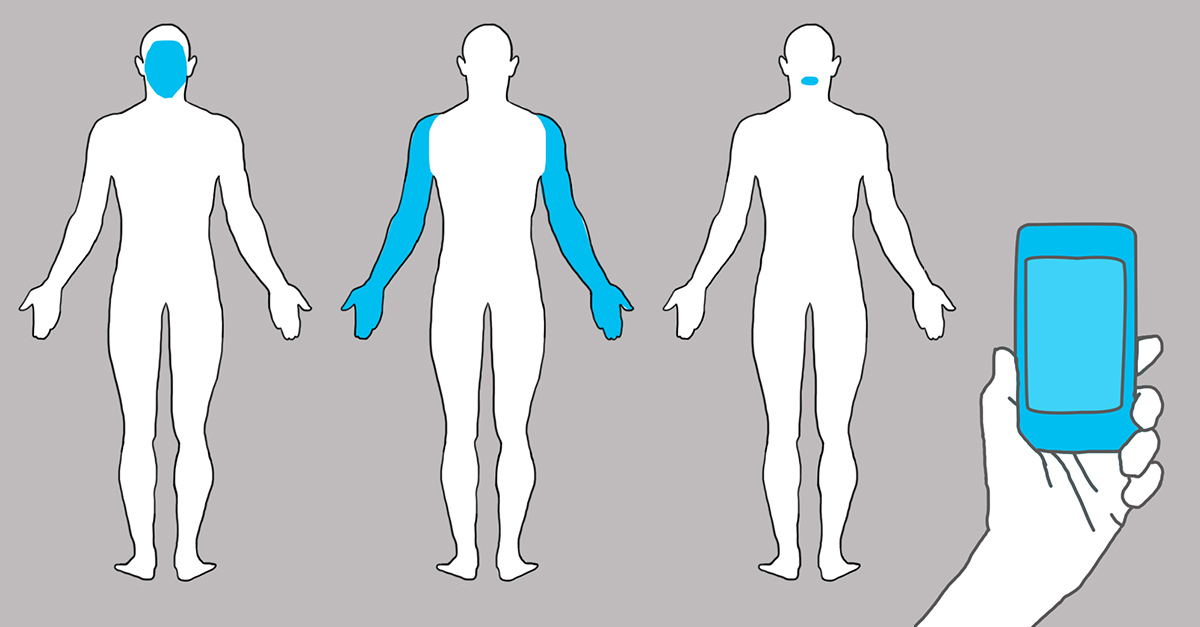
Every year, about 130,000 Americans die from a stroke, according to the Centers for Disease Control and Prevention.
That may not seem like a lot, but to put that in perspective, that's about one American death every four minutes. And while the risk of a stroke gets greater as you get older, the truth is that anyone could have a stroke at anytime.
One thing that many people don't know is that a stroke does not need to be fatal. In fact, according to the American Heart Association, "about 6.6 million people who have had strokes are alive today." But those survivors all have something in common, and it isn't luck. Recognizing the signs of a stroke and seeking immediate medical attention are crucial elements to saving the life of someone having a stroke.
Neurologist Dr. Seemant Chaturvedi writes, "There are treatments available for a stroke that need to be provided within the first 3–4 hours. That is why urgent attention is critical."
Knowing the symptoms of a stroke could literally mean the difference between life and death. So when I saw this extremely easy way to remember how to recognize a stroke and what to do in response, I knew I'd never forget it.
The key is to remember the acronym "F.A.S.T."
Scroll through below to see exactly what this life-saving acronym means, and to learn how to recognize stroke symptoms right away!
The "F" in F.A.S.T. stands for "Face"
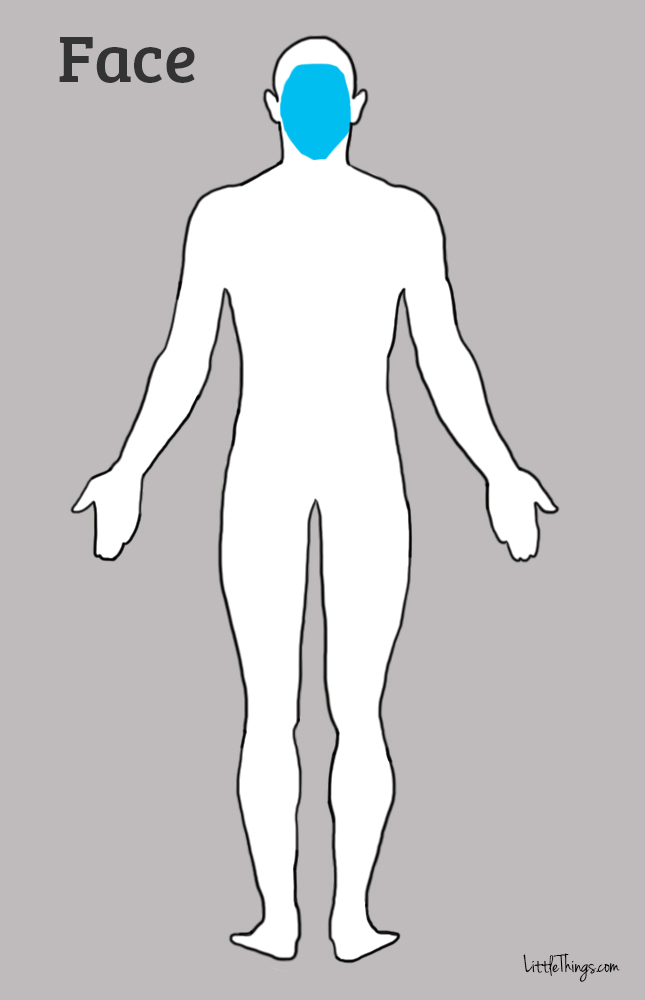
The face is the first thing that you should check for in your F.A.S.T. self-assessment.
Attempt to smile. Does one side of your face droop at all? If it does, this is a very strong sign that you are having a stroke. You should immediately dial 9-1-1.
Remember, F stands for Face!
The "A" in F.A.S.T. stands for "Arms"
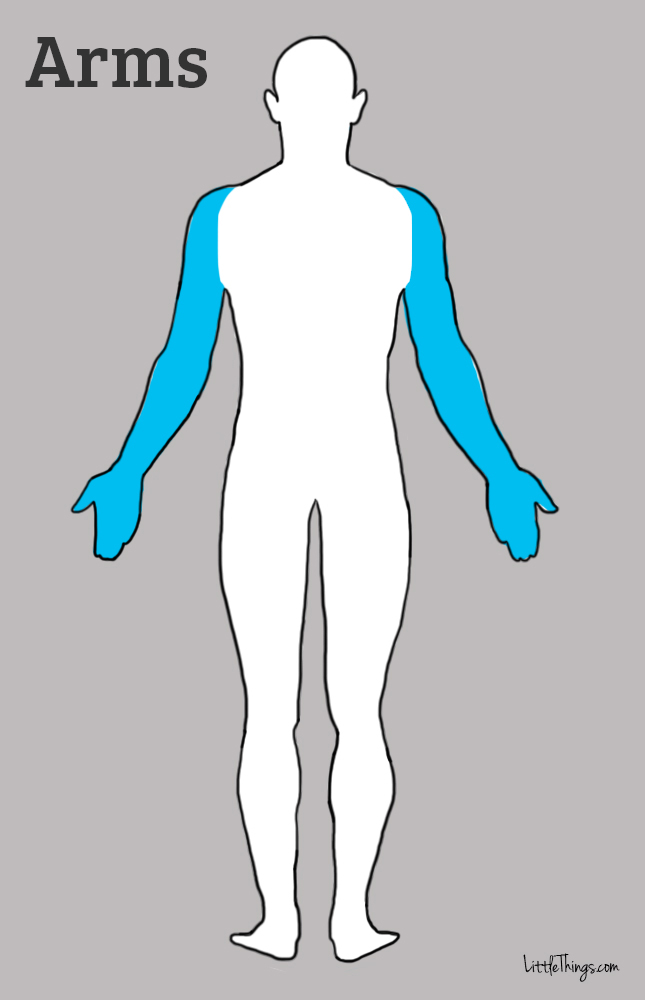
Your arms are the next thing you should check in your F.A.S.T. self-assessment.
Try to raise both of your arms up. Are you having a hard time holding them up? Is one of your arms higher than the other? If the answer to these questions is yes, this is a strong signal that you are having a stroke. You should immediately dial 9-1-1.
Remember, A stands for Arms!
The "S" in F.A.S.T. stands for "Speech"
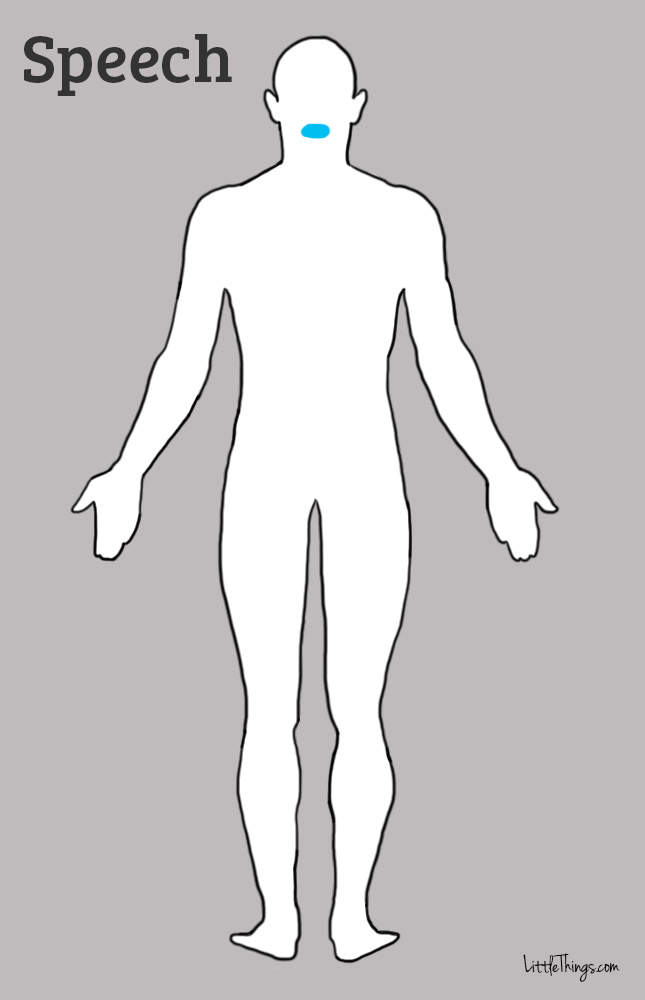
Your speech is the third thing you should check in your F.A.S.T. self-assessment.
Try to say a short, simple sentence aloud, such as "Humpty Dumpty sat on a wall." Repeat the sentence several times. Are the words difficult to understand? Are you slurring your speech? If you are slurring, this is a strong signal that you are having a stroke. You should immediately dial 9-1-1.
Remember, S stands for Speech!
The "T" in F.A.S.T. stands for "Time to call 9-1-1"
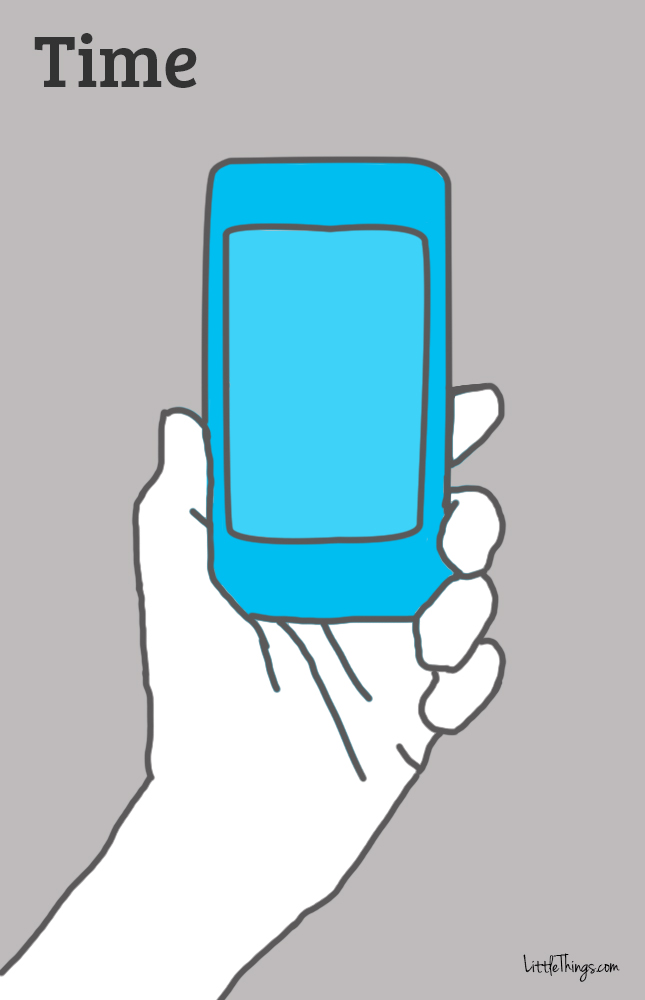
The "T" is probably the most important part of your F.A.S.T. self-assessment.
Does one side of your face droop? Is one arm higher than the other? Are you slurring your speech? If you answer "yes" to any of the three self-assessment questions, it is time to dial 9-1-1 right away.
Remember, T stands for Time to call 9-1-1!
Have you mastered the F.A.S.T. test? Scroll through to see 6 more symptoms of a stroke. Recognizing these warning signs can absolutely save your life!
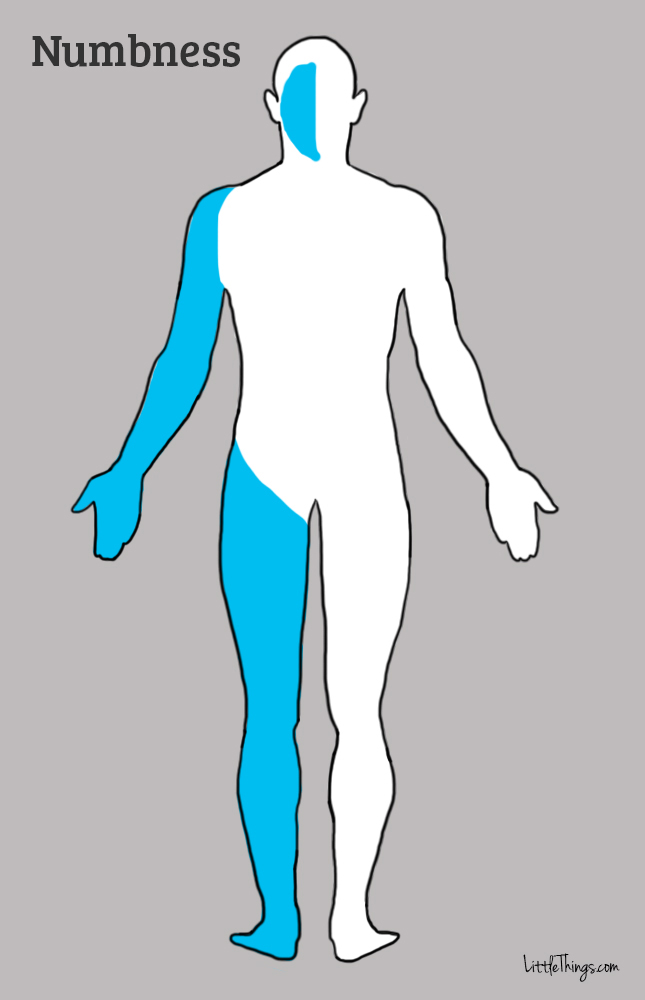
The sudden onset of numbness in the body is one of the warning signs that you may be having a stroke.
This numbness or feeling of weakness may occur in the face, arm, or leg, and often occurs on one side of the body.
While numbness may not necessarily mean you are having a stroke, seeking medical attention is definitely advised as it could be a sign of a stroke or some other serious health issue.
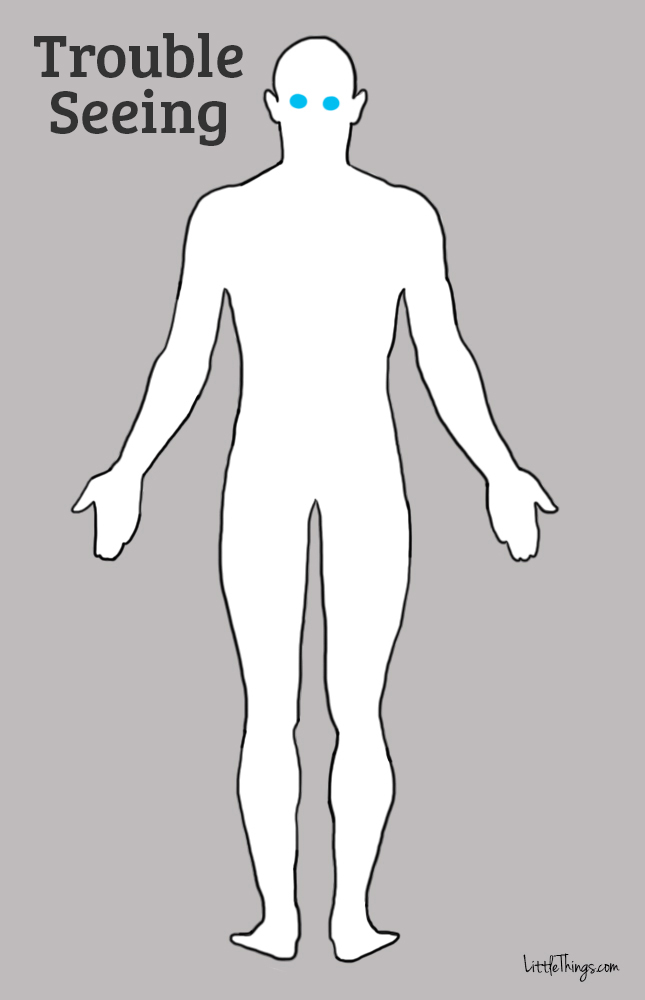
If you all-of-a-sudden have trouble seeing, this could be an indication that you are having a stroke.
As with many of the stroke symptoms, if a loss of vision in one or both eyes comes on quickly, you should seek medical attention.
On its own, this symptom could be attributed to other health problems, but it is best to have it checked out immediately to be safe.
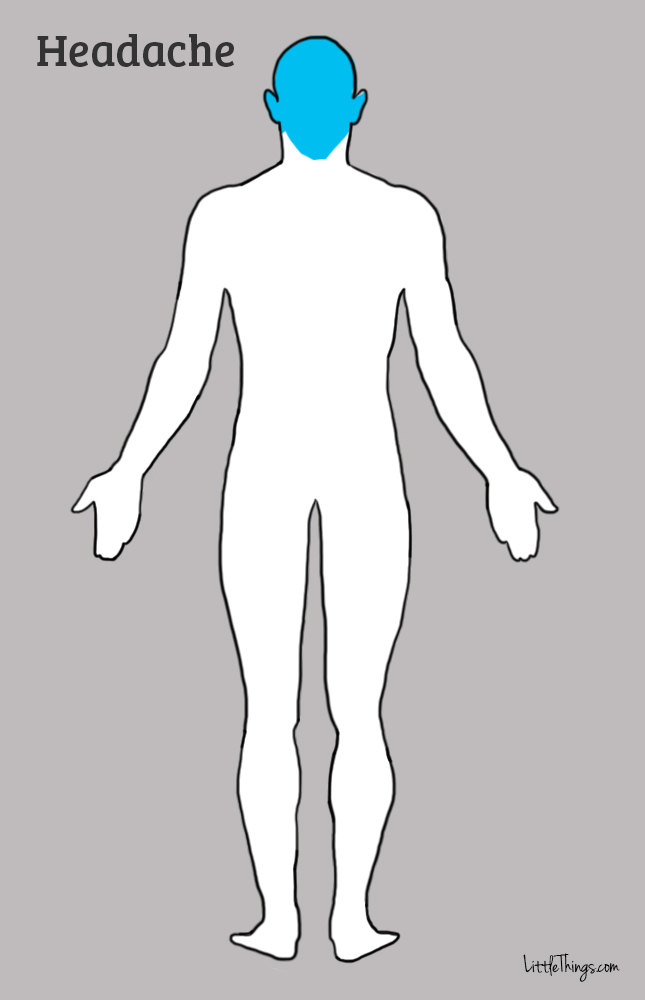
A severe headache that comes on very quickly for no reason is one symptom of a stroke.
This can be one of the harder signs to pick up on as many people suffer from headaches, even severe ones. However, a massive headache that comes from out of nowhere should be taken seriously, especially if any other stroke symptoms are present.
Seeking medical attention is always wise with a sudden, severe headache.

Sudden dizziness or the quick onset of vertigo could be an indicator that you are having a stroke.
As with a headache, it may not seem like dizziness should be taken all that seriously. In fact, there are many different medical reasons that sudden dizziness should occur. This is all the more reason to seek medical attention right away.
Especially when in combination with other symptoms, sudden vertigo should mean an immediate trip to the hospital.
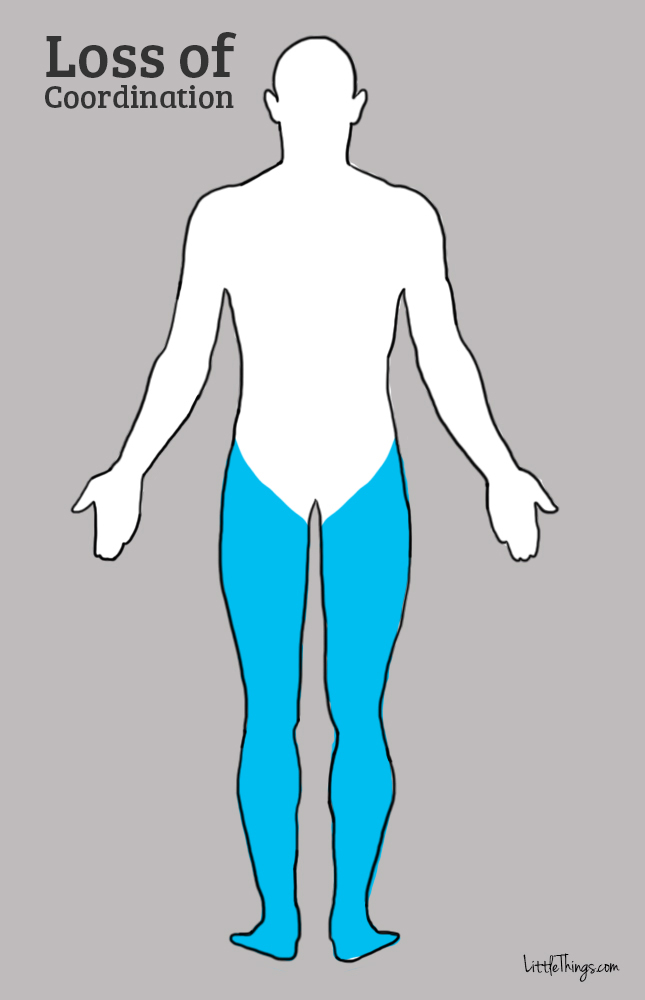
A sudden loss of coordination can be a warning sign that a stroke is occurring.
If you are unexpectedly having trouble walking or staying balanced, or if you lose control of your coordination, you should absolutely seek medical attention.
As with each of the stroke symptoms, reaching a doctor as quickly as possible is crucial to saving your life.
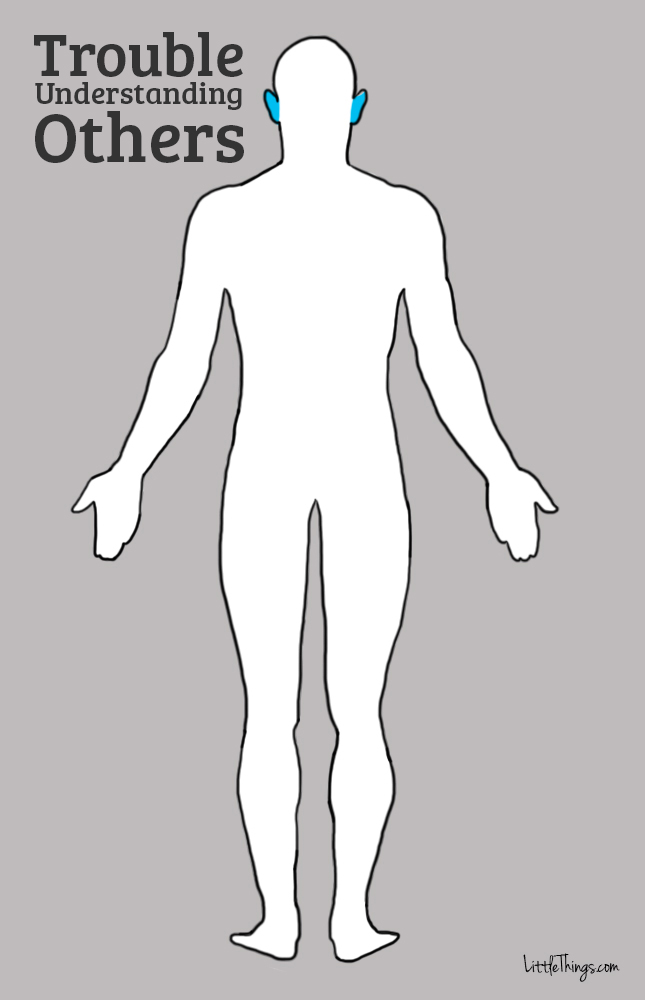
If you are having trouble understanding others all of a sudden, you may be having a stroke.
The sudden onset of confusion is never a good sign and could be an indicator of a stroke or some other equally serious medical condition.
Recognizing this symptom in yourself or others is vitally important, and medical attention should be sought right away.
Remembering the simple anagram F.A.S.T. as well as these other stroke symptoms could save your life.
Please SHARE and help spread this important information!




